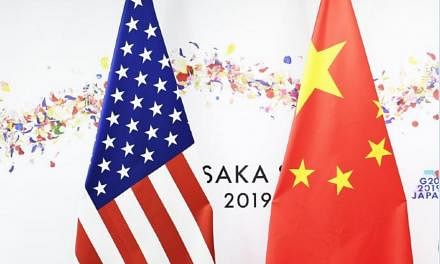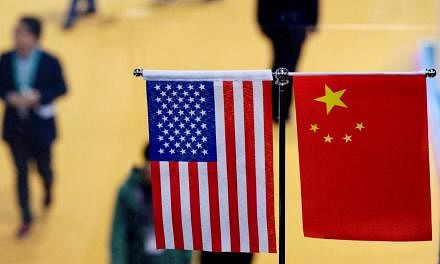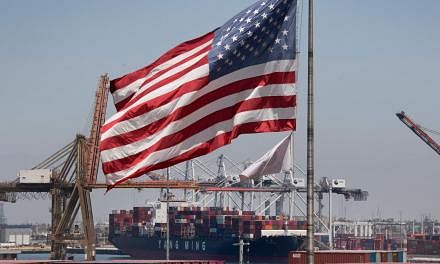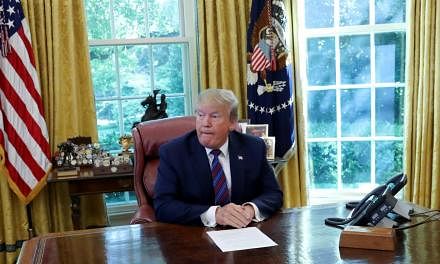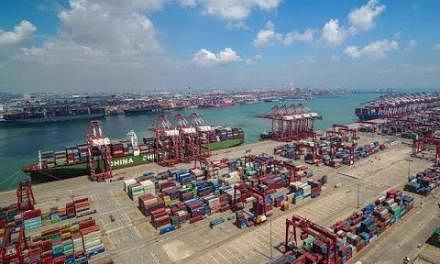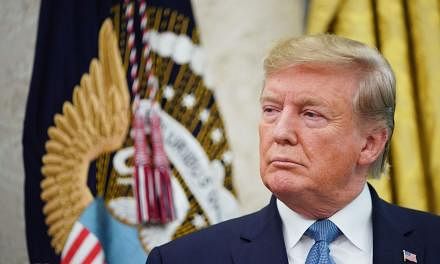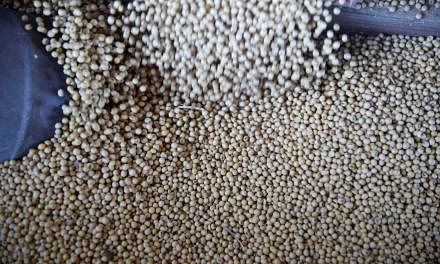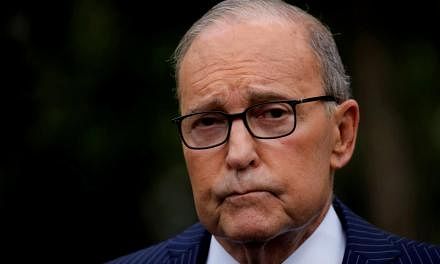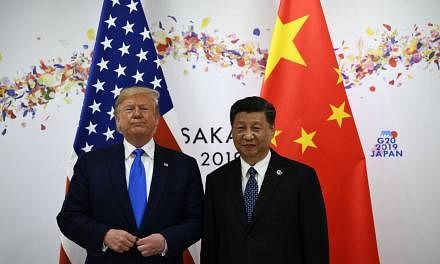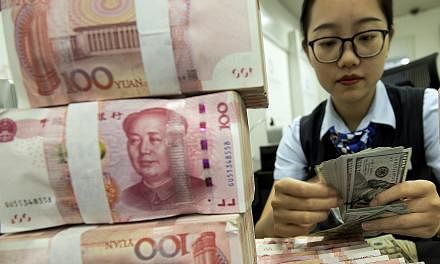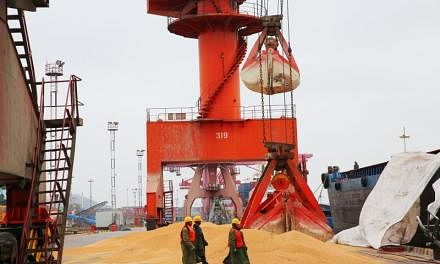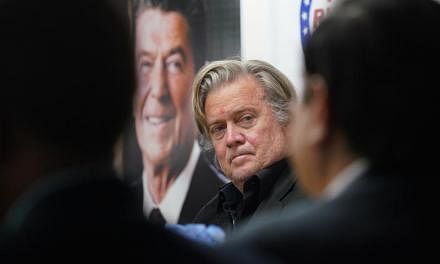WASHINGTON (BLOOMBERG) - US President Donald Trump said he will confront China "very strongly" over trade in the coming weeks, as his administration plans to announce on Friday (June 15) a final list of tariff targets, which will be imposed shortly thereafter.
"China could be a little bit upset about trade because we are very strongly clamping down on trade," Mr Trump said in an interview with Fox News' Bret Baier airing on Wednesday.
The interview was conducted on Tuesday aboard Air Force One after Mr Trump met North Korean leader Kim Jong Un in Singapore.
The comments will heighten expectations that China will retaliate with tariffs of its own if the United States goes ahead with its plans.
A spokesman for China's Commerce Ministry did not directly comment on the developments at a briefing in Beijing on Thursday.
Mr Trump has convened a meeting at the White House on Thursday to talk with his trade team about whether to move forward with tariffs on Chinese goods, according to two people familiar with the plans.
"You will see over the next couple of weeks. They understand what we are doing," he said before praising his good personal relationship with Chinese President Xi Jinping.
The White House has said it is proceeding with plans to impose duties on US$50 billion (S$66.7 billion) of Chinese goods, after weeks of high-level discussions between the US and China yielded little progress over a trade deal.
The Trump administration is reviewing a flood of comments to refine its initial list of US$50 billion in imports that it revealed in April. In its preliminary list, the US said it would levy an additional 25 per cent duty on everything from TV components to dishwashers and snowblowers.
China has previously threatened to respond with proportional duties on everything from American soya beans to airplanes. The two countries have been trying to negotiate a truce to the trade spat. But at the latest round of talks in Beijing, Mr Xi's government warned that it will withdraw any commitments if Mr Trump carries out his threat to impose duties.
If the US and China descend into tit-for-tat tariffs, investors will become increasingly nervous about the prospect of a protracted trade dispute that will result in a drag on global growth, said Mr Michael Every, head of financial markets research at Rabobank Group in Hong Kong.
"Trade is going to be far more unpredictable going forward and, so far, markets keep trying to shrug it off as if it isn't going to happen," Mr Every told Bloomberg Television. "When it finally happens, maybe the markets will wake up and realise, wow, this is actually happening."
Administration officials have cautioned that Mr Trump has the final say.
"It's always the president's decision," White House trade adviser Peter Navarro said on Tuesday at an event in Washington.
The administration is expected to put the Chinese tariffs into effect by next month, said Mr Ted Murphy, managing partner at the Washington office of law firm Baker McKenzie.
"That would be my baseline case: That they're going to publish a final list on Friday with an effective date of July 1," said Mr Murphy, who sits on a trade committee that advises the Commerce Department and US Trade Representative's office.
"Things change on a tweet, so if they think China is negotiating in good faith, they could delay it."
Mr Trump's warning comes just days after his meeting in Singapore with Mr Kim over that nation's nuclear weapons. China is a key player in talks to wind down North Korea's nuclear programme and bring peace to the Korean peninsula.
China is widely seen as one of the big winners of Mr Trump's meeting with Mr Kim as it hopes to maintain stability in its neighbouring country and boost trade.
Mr Trump on Tuesday thanked China for tightening its sanctions on trade with North Korea, arguing that the economic pressure along North Korea's north-west border had helped bring Mr Kim to the negotiating table.
The tariffs move would come against the backdrop of heightened tensions between America and its traditional trading and security partners.
A meeting of the Group of Seven ended in chaos, after Mr Trump revoked support for a joint statement and lashed out at fellow leaders. Following the meetings, International Monetary Fund managing director Christine Lagarde warned that the outlook for the global economy is growing "darker by the day".
Businesses are lobbying to shape the final US list, with many firms pushing for exclusions for products they use in their supply chains. Almost 125 companies testified in Washington during three days of hearings last month to collect feedback over the tariffs. Many warned that the tariffs would increase their costs and raise prices for consumers.

